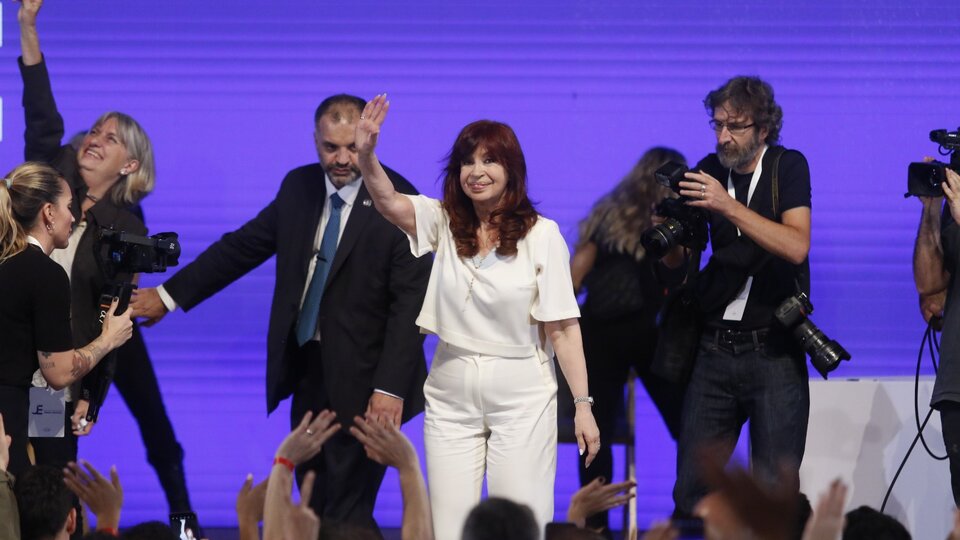In Cristina’s speech, at least two different meanings of her locution coexist. We obviously do not intend here to present an exhaustive analysis of his master class.
But a first approximation allows us to specify the following. The Vice President first presents a detailed analysis of the power structures in Argentina, the criminal condition implied by Macri’s debt to the Fund, and then, as a denouement, the inevitable note on his unique condition: to be the only outlaw politician who has been attempted to assassinate without having the corresponding consequences for an act of such gravity.
The immediate reading that emerges from this analysis is that, in this state of affairs, it is not possible to speak of the existence of a true democracy in Argentina. To present oneself as a candidate, in principle, would be to claim that there is a reality which is perforated on all sides and which cannot be ratified by one’s candidacy. Democracy in Argentina has intervened and conditioned, and if it is not yet an absolute fact, it is thanks to the different forms of militancy that operate in the space of counter-powers.
In a different sense, and given the serious structural fragility of the country, Cristina convenes a founding agreement that establishes, beyond the specific differences, a will of the country which makes it possible to establish the minimum conditions essential to the future of the Nation. It is obvious, first of all, that this cannot be resolved in an electoral campaign. And this is the most enigmatic aspect of his speech.
While the first part, in its politico-economic analysis of the Argentine powers, was assertive and combative, typical of the purest Kirchnerist sentiment, now a second part emerges in the narrative of its master class which deserves to be questioned.
It is the one that refers to the Entente, an agreement that does not seem to have anything to do with an electoral coalition and whose aim would be neither more nor less than to establish a programmatic basis of Argentina’s real survival.
Here the questions inevitably arise: does this agreement require sustained popular mobilization or is it a superstructural appeal? Who would be the privileged actors of this agreement? Politicians and businessmen who do not belong to the world of the Frente de Todos? Larretism, for example? A strategic strengthening of relations with China? The participation of new sectors in the negotiation of a new program with the Fund?
These answers do not have, for the moment, a particular subject to answer these questions, only the events to come can speak.

